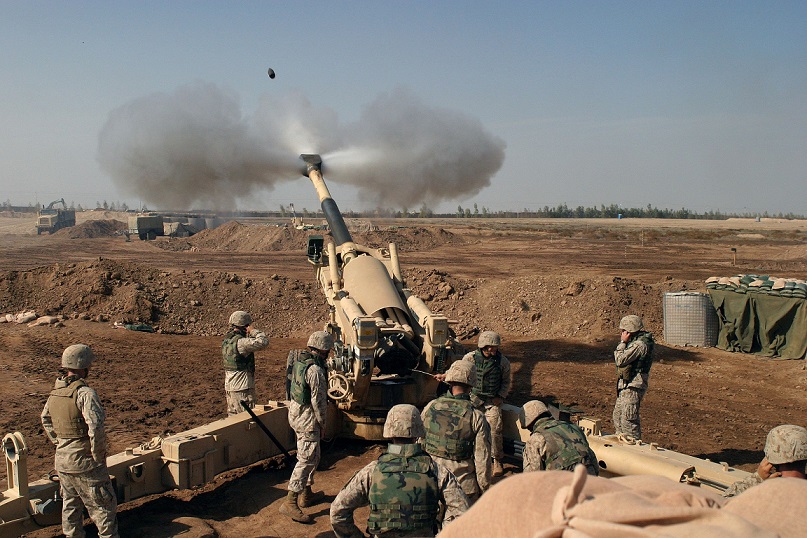All the indications are that nobody in Israel expected an attack on the scale of the one launched by Hamas on 7th October and which has the entire world in a state of high tension, to the extent that President Biden said we are practically on the verge of a world war.
 Juan Diego García
Juan Diego García
Without denying the scale of the problem, it would not be strange if these words from the president of the United States were another of his careless comments, of the sort that his advisors rush to deny, just as happened when the elderly president stated that Palestinian militias had beheaded minors at the outset of the Palestinian offensive.
This and other similar news call to mind the Nazi propaganda that showed in a film how rabbis kidnapped Christian children to use them as human sacrifices.
Propaganda and manipulation have been, since the last century, key instruments in the alienation of large social majorities; not just of the less educated.
What we are seeing today, reviewing the information, follows the same logic, although it is necessary to underline that given the scale of the problem the manipulators are finding it quite difficult to succeed in their endeavours. Another contributing factor to this is Zionism’s clumsiness using racist language which in so many ways coincides with the Nazi arguments of “living space” and the “superior race”. It is not surprising then that across practically the whole planet voices are rising in condemnation of Israel and support for the Palestinian people.
 It is moving to see on the streets of London and New York how, alongside Palestinian protestors, many Jews who reject the neo-Nazi practices of Israel’s government can also be seen.
It is moving to see on the streets of London and New York how, alongside Palestinian protestors, many Jews who reject the neo-Nazi practices of Israel’s government can also be seen.
And it is not only the orthodox Jews who do not accept the so-called state of Israel but Jews who view as possible and necessary the co-existence of Jews, Islamists, Christians and non-believers; all in peace under the same roof, with similar rights and living together openly and peacefully. Appropriating everything, land and riches, and expelling anyone whose presence is not comfortable for them is normal for Zionism. They have even taken ownership of the term “semite”, as though the word were the Jews’ private property.
A glance through the dictionary is enough to confirm that “semitic” is a use of language predominant long before our Christian era and which included Jews, Muslims and other peoples of the region. But no, now only Zionists are semites, similar to what happens with the word “American” which the yanks have appropriated, in the same way they have always wanted to make the whole continent their own. When one walks around the United States, sometimes a police officer will ask, “Are you a citizen?” and be surprised when the answer is, “Of course I am, of my country”.
It is very difficult to know with certainty how the conflict in Palestine is going to develop.
 Among other reasons because, like almost all other conflicts underway in the world, it has necessarily very close links to a complex set of problems whose overall framework is none other than the current fight for world hegemony between the traditional powers and the so-called emerging powers.
Among other reasons because, like almost all other conflicts underway in the world, it has necessarily very close links to a complex set of problems whose overall framework is none other than the current fight for world hegemony between the traditional powers and the so-called emerging powers.
For a periphery country (and Palestine is one, obviously), making the right choices requires seeking new alliances and above all neutralising as far as possible the dependency on the traditional powers of capitalism. It is a matter of using its contradictions (and there are many) and seeking to protect national interests as far as possible within the framework of a dependency that is present in all spheres (economic, political, technological and cultural).
This challenge – which is so evident in Palestine but which affects all periphery countries to a greater or lesser extent – involves achieving a mobilisation that guarantees the necessary support to progressive and nationalist governments that set about getting out of backwardness and poverty and reaching a respectable place in the concert of nations, but also requires the seeking of solid alliances with the populations of the metropolises who, although living in better conditions, do not escape the cyclical crises of capital and see their existence deteriorated with the neoliberal model in place in the world.
 The Palestinian people need to have a government that guarantees the greatest possible national unity in order to progress towards a realistic solution.
The Palestinian people need to have a government that guarantees the greatest possible national unity in order to progress towards a realistic solution.
If Israel manages to destroy Gaza – as it says it will – part of the Palestinian population will end up in forced exile. That is what has always happened, with the expulsion of millions of Palestinians to Jordan, Lebanon, Egypt, Syria and other countries.
But even so, a nucleus of the population always remains to continue the struggle and the resistance in a thousand different ways; nor does the part of the Israeli population that does not share the racist and xenophobic policies that Zionism promotes seem small.
The negotiated two-state solution seems neither viable nor the best solution. Instead, ideas from those who propose a Palestinian state in which all the local ethnic groups and cultures live together, on an equal footing and in harmonious co-operation, should be considered better.
It is very likely that those who promote other sorts of solution, from Greater Israel (which would include parts of Jordan and Syria, especially) to the destruction of Israel and the expulsion of the Jews, would find themselves impeded by the evolution of events.
 God willing (or inshallah as the Arabs would say), European governments will realise increasingly that it is more in their interests, strategically speaking, to get closer to China and (especially) Russia and significantly reduce their current dependency on Washington.
God willing (or inshallah as the Arabs would say), European governments will realise increasingly that it is more in their interests, strategically speaking, to get closer to China and (especially) Russia and significantly reduce their current dependency on Washington.
Even if only for strictly economic reasons.
It is also encouraging that in the very heart of United States society progress is being made by the reasonable forces that accept that their country’s hegemony is a thing of the past and that the best thing is to adjust to the new global reality. Only a few intellectual nuclei and the odd fraction of the Democratic party seem to understand that times are changing. If this tendency takes root, Zionism will lose its main support and a similar fate will befall many countries’ oligarchic governments, in Latin America and the Caribbean, for example, some of which have and have had openly criminal links with Zionism.
Israel’s role in training Colombian paramilitaries is well-known, no less than its role in dirty business against the Venezuelan government, and in Central America (Guatemala, for example). In this context, there is no surprise in either Gustavo Petro’s government’s respectable attitude nor the ever greater distance between so many of this region’s governments and Israel, condemning the war and calling for respect for the Palestinian population’s human rights.
(Translated by Philip Walker – Email: philipwalkertranslation@gmail.com) – Photos: Pixabay












.jpg)












